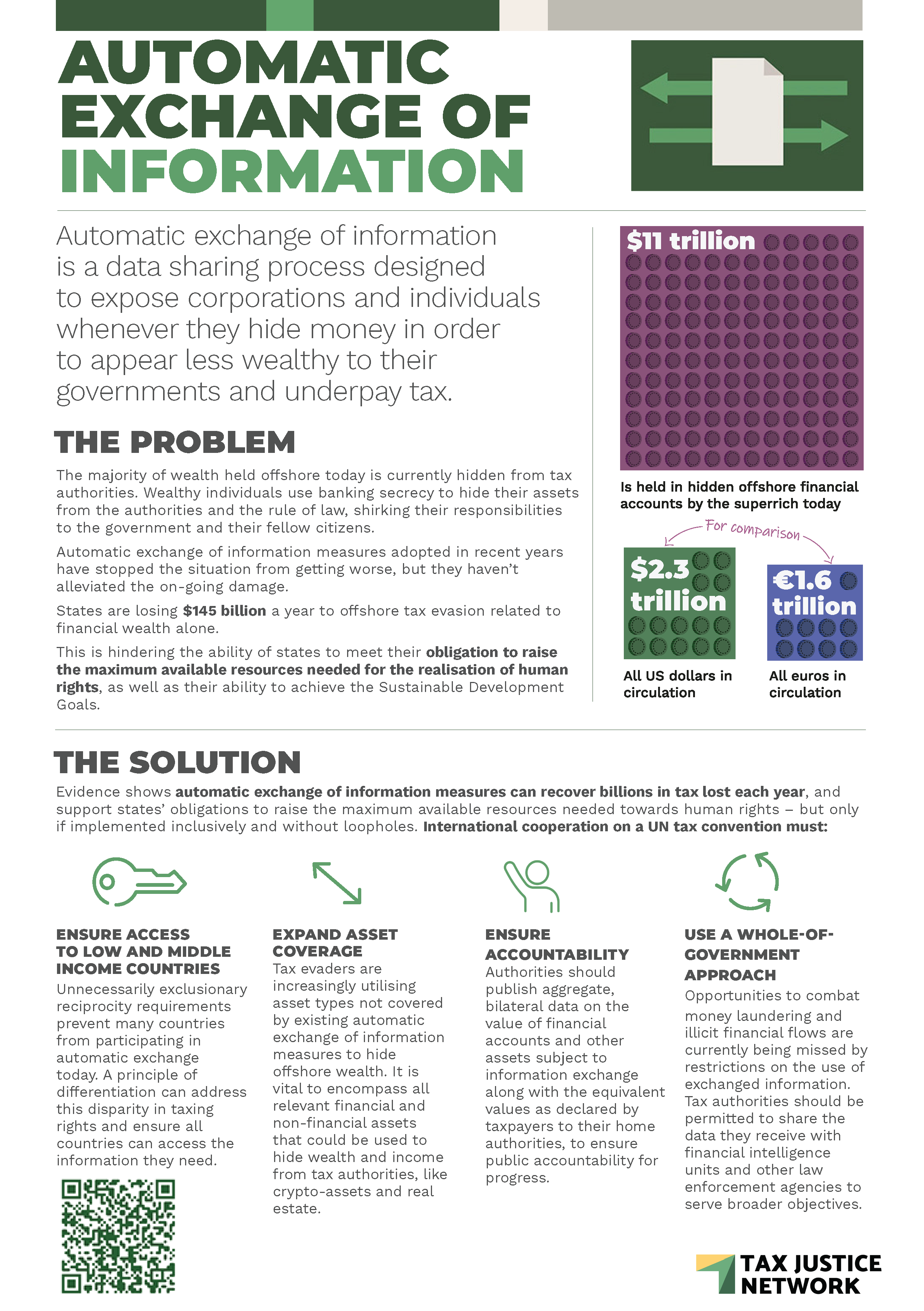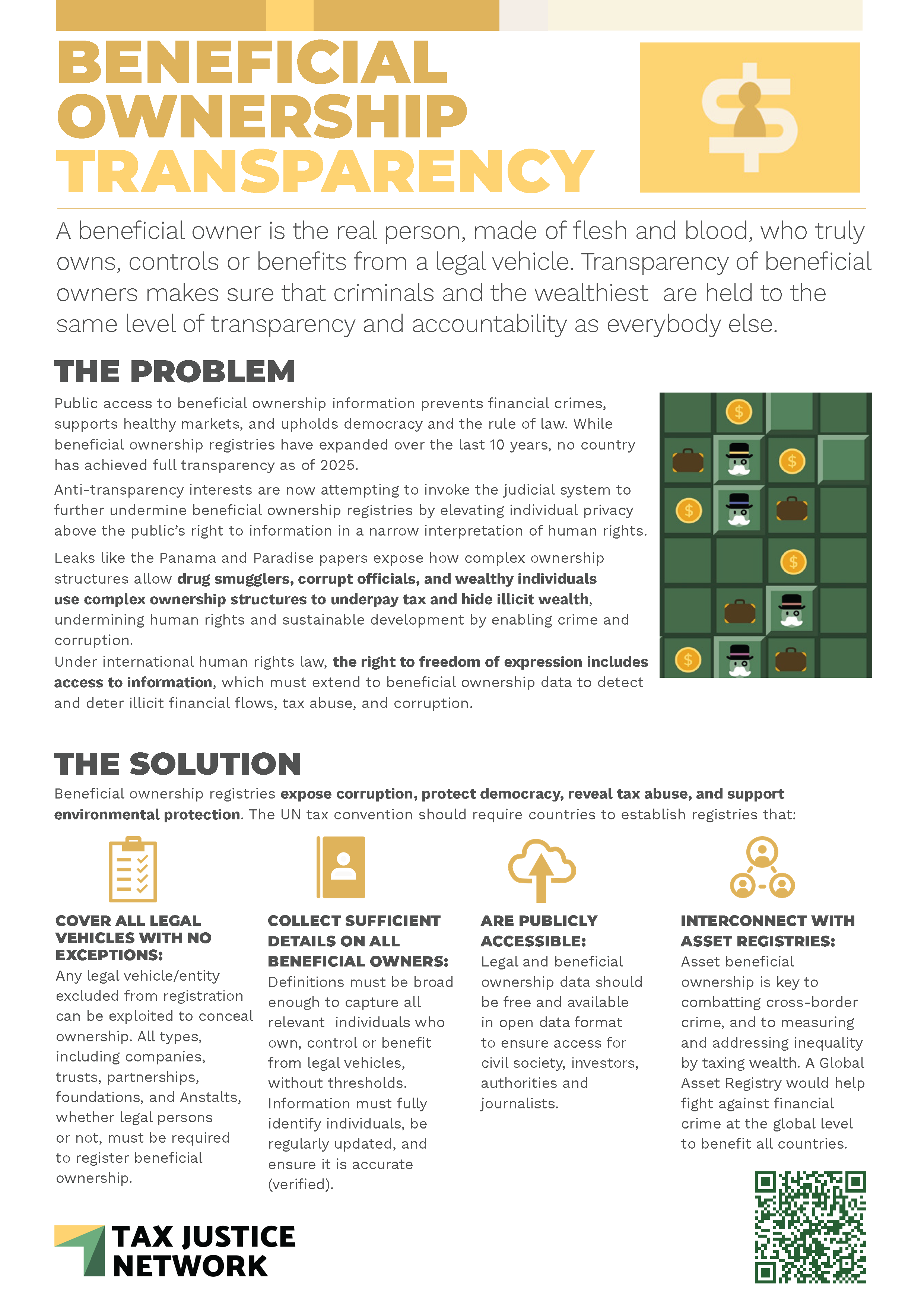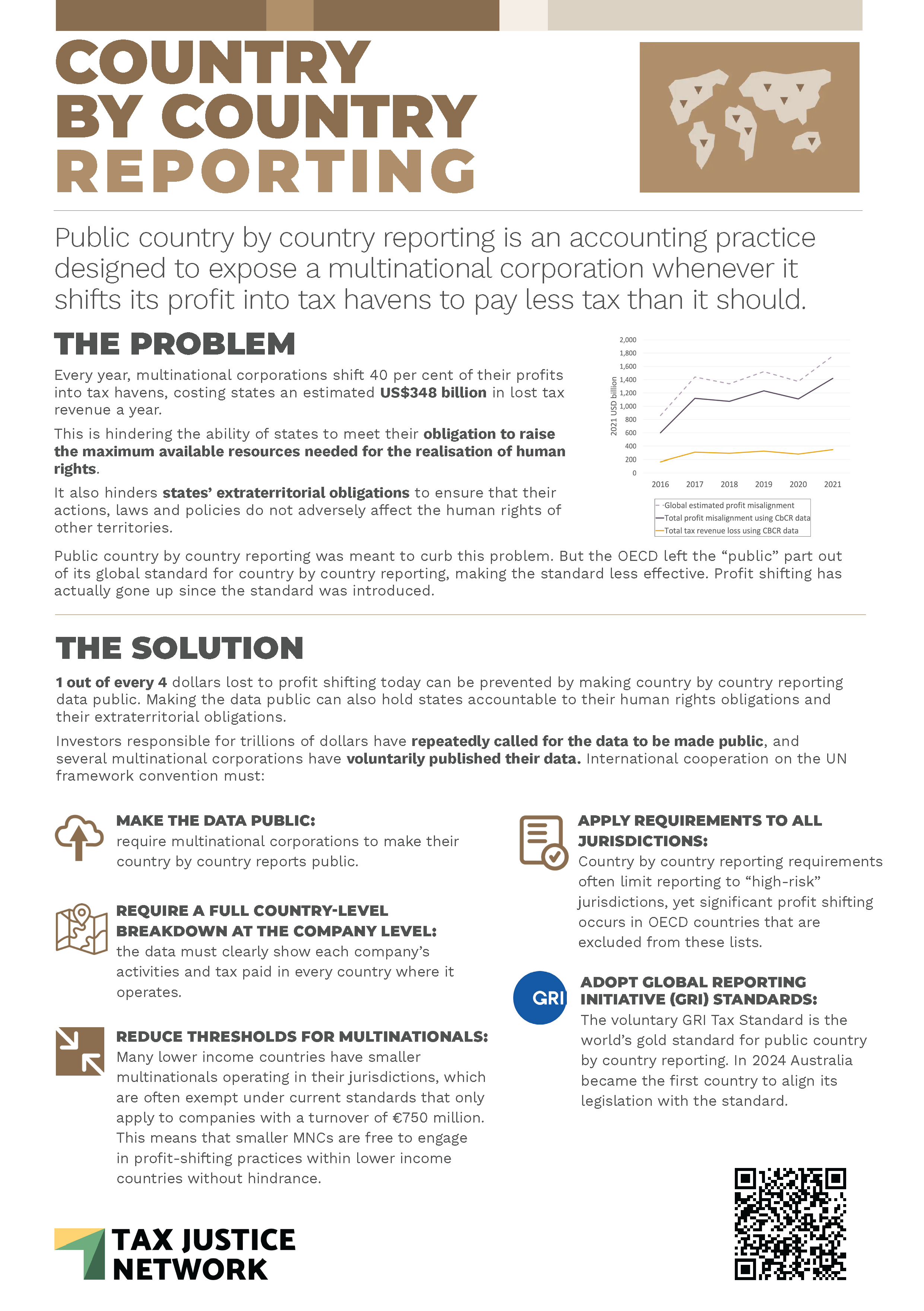
Layne Hofman ■ One-page policy briefs: ABC policy reforms and human rights in the UN tax convention
Get ready for UN tax talks with our ABC’s cheat sheets
In preparation for the next round of UN tax talks in August, the Tax Justice Network is producing a series of one page policy briefs on the ABC’s of tax justice and how the UN tax convention can deliver on these.
Today, we’re publishing the first three of these cheat sheets, covering the policy topics of Automatic exchange of information, Beneficial ownership transparency and public Country by country reporting.
These briefings are designed to provide a brief overview of these tax and financial transparency policies, explain why they are important for policymakers, highlight the human rights obligations underpinning these areas, and outline the most important provisions that international tax cooperation must deliver on in order to comply with the mandate to create inclusive and effective global tax governance that complies with human rights obligations.
Download policy cheat sheets
Upcoming UN tax talks
In just two month’s time, the next round of UN intergovernmental negotiations on global tax reforms will begin as member states convene in New York once again for the first and second substantive sessions on the UN tax convention, or the UN Framework Convention on International Tax Cooperation (UNFCITC).
But what does this actually mean for you and me?
Tax is often obfuscated as a murky technocratic subject removed from our lives; something that ministers discuss in a sphere of theoretical economics that distracts us from the political agenda that is firmly in the driving seat. But, we all pay taxes. We are all affected by taxes. And the way that tax policy is designed can have far reaching impact on our lives, whether we see it or not.
Tax policy has the ability to raise revenue for the provision of public goods and services and also influence the behaviour of taxpayers and businesses to align with broader public goals such as growth and redistribution or even strengthening democracy↪NOTESee the fourth R, Representation, from the report Tax Justice & Human Rights: The 4Rs and the realisation of rights for more on how tax policy can strengthen democracy and representation..
Revenue is required for realising human rights. How governments collect that revenue (from whom and in what way) and what they do with it (fund the right to health or the right to education, for example) has far reaching consequences for our lives and can serve to strengthen and protect human rights and sustainable development, or can choose to disregard human rights and further entrench systemic inequalities.
From 4 to 15 August 2025, member states will come together to begin drafting the framework convention text and the two early protocols: Digital Services and Dispute Resolution. After intense rounds of negotiations to draft the Terms of Reference for the UN tax convention during 2024, it is a good moment to reflect on where and why this process began, with a call from the African Group for a more inclusive and effective tax cooperation at the United Nations. This was followed by a 2023 report by the UN Secretary General which concluded that existing international tax rules developed through the prevailing system are neither fair nor inclusive and that rules developed through OECD mechanisms “do not adequately address the needs and priorities of developing countries”.
In addition to striving to develop a system that is inclusive and effective and therefore has some semblance of legitimacy within a global context, States have also agreed to operate under certain principles in the drafting of the framework convention. These include a commitment to align with “States’ existing obligations under international human rights law” as well as to contribute to “achieving sustainable development by ensuring fairness in allocation of taxing rights”.
As the world’s nation states approach a critical opportunity to reprogramme the international tax system to ensure regulations are aligned with human rights and sustainable development goals, we hope that these policy briefs add to the lexicon of available Tax Justice Network resources and help provide a simple breakdown of the most important aspects of the fundamental building blocks of tax justice. We invite policymakers, civil society organizations, and the general public alike to advocate for inclusive and effective tax governance on an equal playing field for all.
Related articles
Disservicing the South: ICC report on Article 12AA and its various flaws
11 February 2026

What Kwame Nkrumah knew about profit shifting
The last chance
2 February 2026

After Nairobi and ahead of New York: Updates to our UN Tax Convention resources and our database of positions

The tax justice stories that defined 2025

The best of times, the worst of times (please give generously!)

Let’s make Elon Musk the world’s richest man this Christmas!

Admin Data for Tax Justice: A New Global Initiative Advancing the Use of Administrative Data for Tax Research

2025: The year tax justice became part of the world’s problem-solving infrastructure





